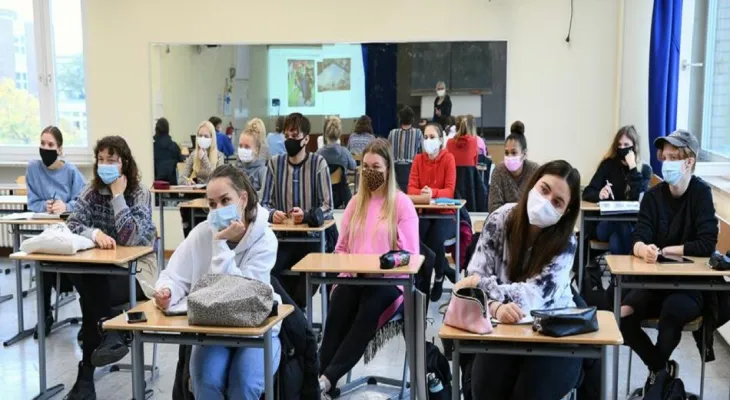Search here
Newspaper
Search here

Arab Canada News
News

Published: January 30, 2024
A study conducted in Norway revealed that education in general prolongs human life and helps improve health for people regardless of their ages, ethnicities, geographical distribution, and demographic and social backgrounds.
A research team from the Norwegian University of Health and Technology found that the risk of death decreases by 2% for each additional year of study a person completes, which means that spending six years in primary education prolongs the average human lifespan by 13%, and the probability of death decreases by 25% after graduating from secondary education, and decreases by 34% after completing 18 years of education.
Within the framework of the study published in the scientific journal The Lancet Public Health, the research team compared the impact of education on health risks such as smoking, alcohol consumption, and eating unhealthy foods, and it was found that the benefits of 18 years of education are equivalent to consuming ideal amounts of healthy foods, such as vegetables for example, and that never attending school is equivalent to smoking ten cigarettes daily for ten years, or consuming five alcoholic drinks daily.
The specialized scientific research website "Science Daily" quoted researcher Terje Andres, director of the Center for Research on Health Inequality in the World, as saying that "Education is important in itself, not only because of its health benefits, but our ability to quantify the health benefits of education is a tangible development."
The study collected data from 59 countries, including more than 10,000 pieces of information obtained from over 600 research papers. The study generally focused on high-income individuals and confirmed the need for further research on people from low- and middle-income countries, especially those from the Sahara and North Africa, from which sufficient data was not collected.
Claire Hinson, a member of the study team and researcher at the University of Washington School of Medicine, confirmed that "Closing the educational gap means closing the mortality gap," and she explained: "To reduce inequality in death rates, investment must be made in areas to enhance educational opportunities," and she affirmed that this investment would have a positive impact on human health in all countries.
Comments